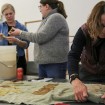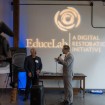Law Research with Richard Ausness
Richard Ausness is the Associate Dean for Faculty Research and the Everett H. Metcalf Jr. Professor of Law in the UK College of Law. He came to UK in 1973. He has published more than 60 articles on products liability, trusts and estates, environmental law and water law.
He talks about research in law as boiling down to picking out a topic in your field of specialization, doing research, writing about it and publishing law review articles. Ausness says, “In the last three years, I've been writing more in the trusts and estates area. Even though people have been writing in that area for a hundred years, there’s always a new perspective on something that’s old. One of the areas that I have written a fair amount in that area involves trust protectors, who are people that supplement the activities of a trustee and have certain powers that the trustee may not have.”
In this podcast, Ausness explains the importance of research and writing to law scholarship and practice and how the College of Law can contribute to the UK research enterprise.
Law Research with Richard Ausness - Podcast Transcript
Have you ever wondered who was doing the research that will impact your future? The research podcast lets you met those people, and learn how the University of Kentucky is exploring and strengthening our understanding of the world through research and discovery.
Here's Alicia Gregory, director of Research Communications.
Alicia: Today we’ll meet Richard Ausness from the UK College of Law. He is the Associate Dean for Faculty Research and the Everett H. Metcalf Jr. Professor of Law. He has published more than 60 articles on products liability, trusts and estates, environmental law and water law. He begins by telling us how he ended up in Kentucky.
Richard Ausness: Well, I was born in California, but I've been all over the country. My father was in the Navy, so we traveled a lot. But, I went to college at the University of Florida, and law school there too. And then taught at the University of Florida for a number of years. So, I guess I'm a Floridian, at least, before I became a Kentuckian.
Alicia: So, how'd you end up at the University of Kentucky?
Richard Ausness: Well, they kind of recruited me. I was at Florida, but I was on leave, and getting a degree at Yale, and one of the people on the Kentucky faculty had been on the Florida faculty, and thought that I would be a good fit for some of their curricular needs. So... one thing led to another, and here I am.
Alicia: How long ago was that?
Richard Ausness: 1973. So, I've been here more than forty years.
Alicia: So, what motivated you originally to go into law?
Richard Ausness: Well, I just sort of backed into it, I guess. I was an English Major, and figured that I probably would want to go into some profession, and I just didn't really care for medicine, so, that sort of left law as the next choice. Since I wasn't very good at math, I ruled out engineering pretty quickly.
Alicia: From law to then an academic position, how did that kind of happen?
Richard Ausness: Well, it was purely fortuitous. I was a research assistant for the dean, Frank Maloney, at the time, and he was working on a book on Florida water law, and when we finished that, I was about ready to graduate, and he asked if I would like to join the faculty. Back in those days, they didn't have hiring committees or anything like that. It was pretty much the Dean's call. So, I said yes, and the rest is history.
Alicia: So, what does research look like in law? Because I don't think a lot of people don't really understand what that means.
Richard Ausness: It's not at all like bench science research. We pick out topics that interest us, usually in our field of specialization. And you write about it, and then publish it in law review articles, typically. Although some people write books or treatises. I'd say the average law review article is about 40 to 50 pages long. I've written some that have been over 120 pages. So, just depends on the subject and how much you want to write about it. And we can usually do one in a year, maybe a little less than that. It's a lot of fun. And it's very creative.
Alicia: So, you mentioned water policy was one of your areas. What are some of the other areas?
Richard Ausness: Well, currently I teach products liability. Two courses in products liability. Property and trust and estates. In the past, I've taught land-use planning and torts and legal history as well.
I've done most of my work, in recent years, in products liability. And, for a long time, for about 20 years, there was always something new happening, every year. Mainly because clever plaintiff lawyers came up with new theories of liability and tried them out. But actually, in the last 3 years or so, 3 or 4 years, I've been writing more in the trust and estates area. And I find that, even though people have been writing in that area for a hundred years, there's... there's always, again, something... not so much something new, as a new perspective on something that's old. One of the areas that I have written a fair amount that is new, involves trust protectors, who are people that supplement the activities of a trustee. And have certain powers that the trustee may not have. And, very interesting... very interesting area, and there isn't much on it right now.
Alicia: What does some of your research in areas like this, how does that impact how you train students?
Richard Ausness: Well, law school training is fairly theoretical, and so we try to give them, of course information, but also some idea of analyzing things, anticipating problems. For example, I had a pro bono case involving a very small trust, and... and to make a long story short, the moral or the takeaway, is read the trust. It was only one page long, and there was a little sentence in there giving him the right to change the trustee. And, I said, you don't like your trustee? Change him. Get somebody who sees things your way. Because the trustee wasn't giving him enough money. Something as simple as that, that you would think that would be obvious, but... but isn't. I don't have too many war stories, but they... the students do appear to enjoy them.
Alicia: I think that's always important. Always read a legal document.
Richard Ausness: Absolutely. And they don't like to do that. This generation of students are not especially interested in reading from a text. You know, they obtain information in other ways, and you just have to keep insisting that they read cases carefully, read statues carefully. It's sometimes tedious, but it's really important.
Alicia: So, what's been the most rewarding part of these 50 years?
Richard Ausness: Well, for me it's the research. Now, I enjoy teaching, too. Students are wonderful. But I like the creative aspect of writing. And, again, we're pretty much lone wolves, we don't... we don't use teams much. So, it's just me sitting down, thinking about something, coming up with ideas. You do send it around and have other people, you know, react to it sometimes, but that's just... it's a lot of fun. Just, the simple task of organizing: what goes first and what goes second. It's not as easy as it might seem. At least in some cases.
Alicia: I guess I never really realized the connection between being a good writer and law.
Richard Ausness: Oh, it's very important. And, unfortunately, a lot of students don't have a good background in English. Their grammar is terrible, their vocabulary is limited. Now, that's not everybody, of course, but you get a certain number. And, it's a real handicap for them, because they can't express themselves. Especially in writing. And when I teach seminars, I spend a lot of time on just the nuts and bolts of how to research and how to write.
I'd say 30% of our students are from out of state, or at least have gone to out of state schools. So, they come in with very varied backgrounds. You really have to work with those people, because they need...that's something that they need to be able to do when they get out. They think, you know, they'll be trial lawyers like Perry Mason, but writing is still a... no matter what type of law you practice, you still have to be able to express yourself clearly.
Alicia: You are the Associate Dean for Faculty Research...
Richard Ausness: That's right.
Alicia: What does that entail?
Richard Ausness: I try to be helpful to younger faculty, although, frankly, they're more savvy than I am about a lot of things. I try to facilitate research. I'm in charge of the summer research grant program, and every other year, we do a faculty workshop for young faculty from all over the country. And, then there's just little things that come along having to do with research. And, of course, I go to these meetings every month, the ADR meetings. That's revelation, because we don't do that kind of research, by and large. So, I... it's interesting to hear the issues they think are important. How the kind of work we do fits into the UK's research agenda.
Literally, it doesn't cost anything for us to do what we do. Other than maybe a little computer support. And, we publish it in journals; we don't get any money for that, so, the University tends to, I think undervalue that. Now, I think Lisa Cassis is a little more familiar with what we do now, because we've talked about it. And I think she's supportive of that. It doesn't have direct payoff, but I think, if we view research as trying to improve the community, improve the world, as opposed to simply raising money, then I think what we do is pretty important. We have this thing called UK Knowledge, it's a database. And it's had about 170,000 downloads. So, somebody out there is paying attention to what we're doing.
Richard Ausness: I've listened to some of the grants or some of... that people have obtained, and my reaction is, you know, if there's a legal component to that. Like, there's a lot of stuff on drug use in parts of the state. Well, sure you could put up clinics and all of that, but what about a legal... what's the legal response to all of that? You know, criminal penalties, something else, you know, some kind of structural change. That's what we're good at. And, and I think some of the grants of that sort would benefit from maybe a component. And, I think there's people on our faculty that would be capable of... of contributing something like that.
Richard Ausness: I wrote an article on lawsuits against drug companies and other kids of lawsuits, and... and whether they're effective or not in connection with Oxycontin. I was able to say here's all the lawsuits, or at least published ones, and here's the theories that have been successful, here's the theories that have not been successful, and here's perhaps where we should be going in terms of a civil legal response to it. And, like I say, that's the sort of thing I think that we can do, and perhaps should be doing more of.
Thank you for listening to the Research Podcast. To subscribe to our podcasts on Soundcloud or iTunes, search University of Kentucky research media and visit our site; reveal.uky.edu.


